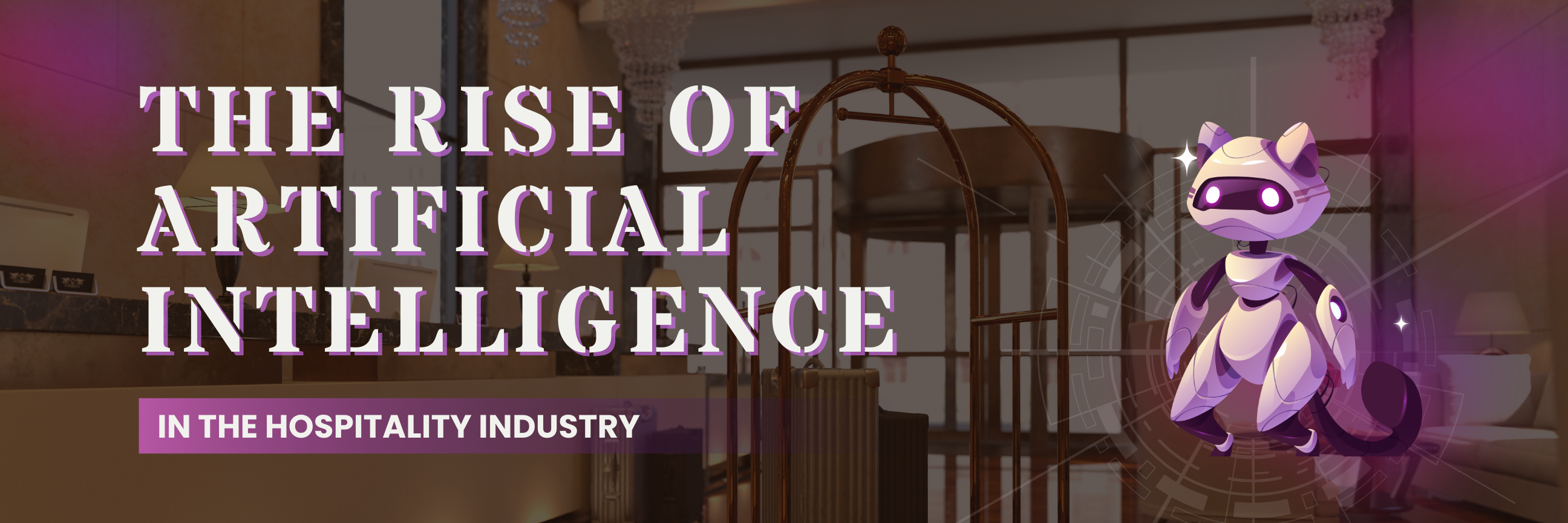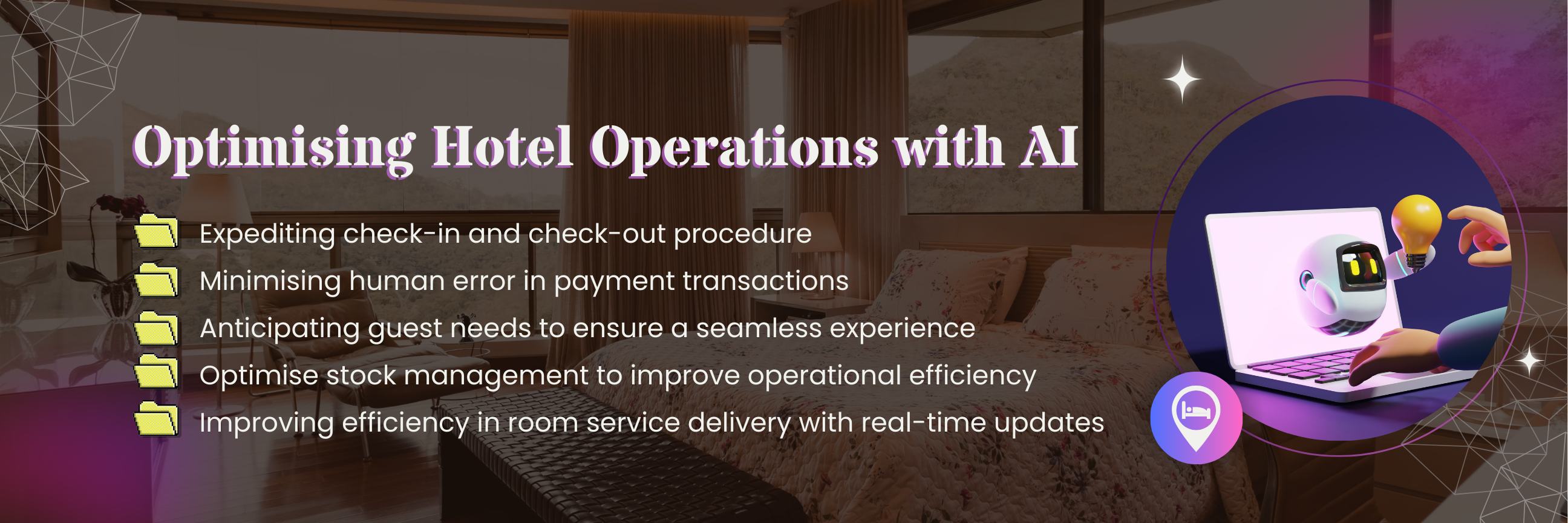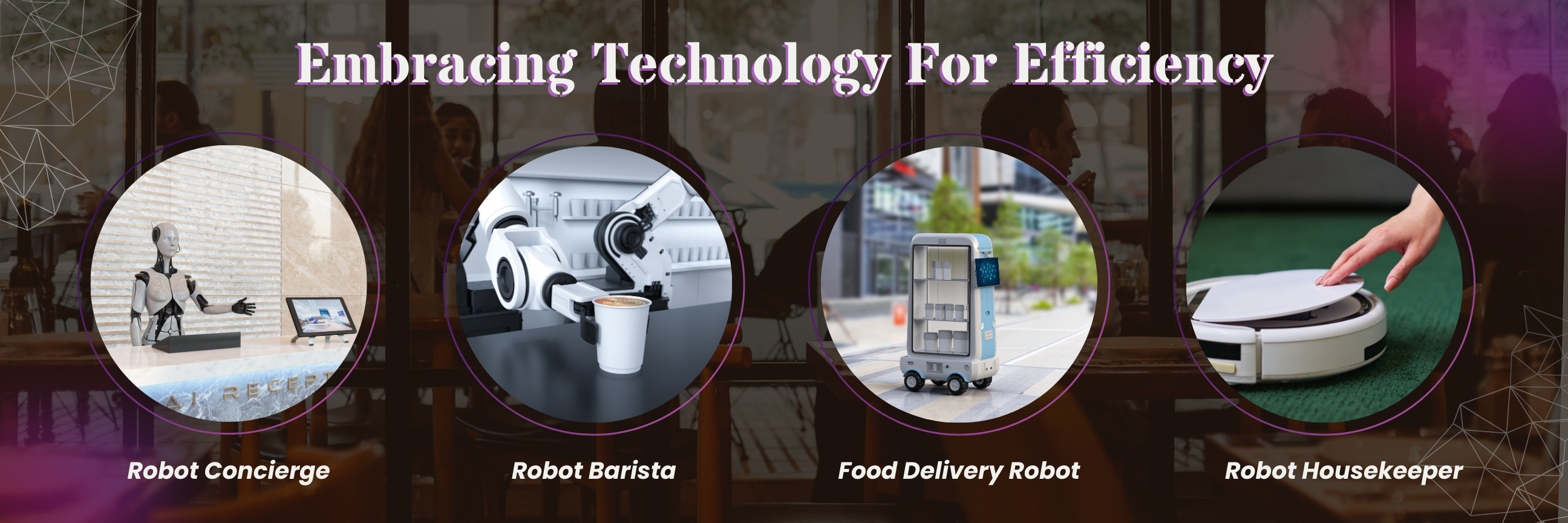The Global AI Trend in Hospitality: Will SG Follow Suit?

In recent years, artificial intelligence (AI), seen in technologies like ChatGPT or Google Gemini, has seamlessly woven itself into our everyday routines. From navigating through Google Maps and checking the weather, to managing online banking, AI quietly powers the tools we use daily, enhancing our convenience and efficiency. But its influence isn’t confined to personal tasks – AI is making significant strides in industries like hospitality, where it’s transforming the way businesses operate and guests experience service.
A Glimpse into the Future of Hotel Operations
Around the world, hotels are embracing AI to streamline their operations and offer guests a seamless experience. Whether it’s managing bookings, optimising housekeeping, or responding to guest requests, AI is helping hotels stay ahead of the curve and deliver exceptional service.
At the Henn na Hotel Maihama Tokyo Bay in Japan, guests are welcomed by robots, which guide them through the check-in process in a smooth, interactive manner. With the help of facial recognition technology, the need for traditional check-in counters is eliminated, speeding up the process while adding a futuristic touch to the guest experience. This innovation not only enhances security but also reduces the chance of human error, making it a seamless experience for travellers.
Moreover, AI-driven housekeeping assistants are changing the way services are delivered in hotels. These virtual helpers assist with tasks like delivering amenities and processing room service orders, enabling both staff and guests to complete tasks more quickly and efficiently, and ultimately improving the overall experience.

Innovation in the Food and Beverage Sector
Beyond hotels, AI is also transforming the food and beverage industry. Last year, South Korea’s leading delivery platform, Yogiyo, launched the country’s first self-driving delivery robots to help address the growing labour shortage. These robots, which operate within a 1.2-kilometre radius of participating restaurants, deliver food to locations like apartments, universities, and office buildings. By automating deliveries, Yogiyo has boosted efficiency, reduced delivery times, and provided a more reliable service for its customers.
In the coffee industry, a similar trend is taking hold. While many are familiar with Starbucks, Artly, is making waves with its robotic baristas. With locations in New York, Canada, San Francisco, and beyond, Artly’s robots can brew coffee to professional standards, replicating complex drink recipes in just minutes. This automation ensures a consistent, high-quality cup every time, while speeding up service that benefits both customers and businesses alike.

The Future is Now: Will Singapore Follow the Global Trend?
As these AI-driven advancements become more common around the world, Singapore’s hospitality and food sectors are gradually embracing these innovations. On the local front, some hotels have already started incorporating robots to assist guests, from delivering food and toiletries to rooms to even preparing the perfect omelette for breakfast. While it’s difficult to predict how quickly AI will fully take over, one thing is certain – the future of hospitality has arrived, and it’s powered by technology.
